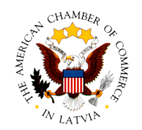The Latvian timber industry represents one of the Baltic Fund’s investments. Baltic Fund, L.P., a U.S.-based private, closed equity fund, is dedicated to investing in public and private companies in Estonia, Latvia and Lithuania. Since 1995, the Fund had pumped a total of $25 million into selected Baltic companies in investments ranging from $500,000 to $3 million.
In July 1996, one year after its final closing, the Fund was fully invested. The primary investors are Rockefeller and Company, Lazard Freres Asset Management and the Al Ibrahim family of Saudi Arabia. Headquartered in New York, Fund has management offices in Riga, Vilnius, and Tallinn to monitor the performance of its investments.
Prior to co-founding the Fund, Hamid Ladjevardi, managing general partner, was Vice President of Morgan Stanley & Company, Inc., where he was a portfolio manager and market advisor for 12 years. He now serves as the Fund’s manager.
Holdings
The Baltic Fund’s holdings are diversified across several targeted sectors that its managers believe are undervalued and represent significant growth potential. Currently, the Fund is most heavily invested in finance and real estate. As the owner of an historic building in the center of Vilnius, the Baltic Fund is involved in a $35 million project to renovate and transform the building into the five-star, 200-room, Marriott Grand Duke Hotel. The hotel is scheduled to open in early 2002. The Fund also has significant holdings in Ober Haus Real Estate Company, a pan-Baltic operation with headquarters in Estonia.
With shares in Latvia’s Unibank and Lithuania’s Vilnius Bank, commercial banking represents the Fund’s second largest investment sector. In the Latvian timber sector, the Baltic Fund has a 30% holding in Lindeks, the country’s second largest exporter of wood products. Lindeks had agreed to a 30-year lease arrangement with the Riga Port Authority, allowing it to operate a 1.15 million cubic meter port facility that will be the largest and most modern timber export facility in Latvia. Lindeks exports pulpwood and sawn wood to Western Europe, particularly U.K. and Scandinavian countries. In Estonia, the Baltic Fund also has significant holdings in wood processing, Alexela gas stations, and Kinnisvara Ekspress, a mortgage finance company.
In the manufacturing sector, the Baltic Fund is the largest shareholder, after company management, in Latvia’s lingerie manufacturer, Lauma. The Fund is also a significant investor in a Lithuanian tile plant.
Finally, the management sector rounds out their Baltic investments. The Fund is the largest shareholder in the Klaipeda Free Economic Zone in Lithuania. In addition, through the privatization process in Latvia, the Baltic Fund has also acquired smaller shares in Valmiera Fiberglass and Staburadze, a manufacturer of biscuits, preserved pastry goods and cakes.
Politics and Economy
Mr. Ladjevardi pointed out some serious concerns for investors in the Baltics. One is the long-term issue of the growing gap between income and wealth, between the entrepreneurial class and other classes, between urban and rural residents, and between ethnic groups. He believes the divergence of wealth and income is potentially destabilizing, especially if a populist leader were to come to power. On the issue of ethnic groups, he noted, “In the long run, if the government wants stability and prosperity as the economy expands, then they also need to have open participation (including the Russian-speaking minority). It is important that we continue to talk about these issues.”
Another concern for Western investors is the issue of corporate governance. Mr. Ladjevardi explained, “Some local managements believe they can run their business without consulting their shareholders. There are still some authoritarian, Soviet mind-sets here. If the Baltics want to attract further foreign investment, minority shareholders’ rights need to be codified into law.”
Forecasts
Although the Baltic stock markets have not fared well in the last two-and-a-half years, Mr. Ladjevardi believes they have turned the corner. “An upswing is beginning based on the upturn in the Baltic economies. If our forecasts are correct, then asset valuation will go up by the end of the year, and 2001 should be a good year.” He also believes that the Baltic States’ accession in the European Union will cause a “revaluation of assets on a fundamental basis. Companies that survive will have a similar premium as their counterparts in other countries, and there will be a golden opportunity for investors.”
Mr. Ladjevardi forecasts that over the next five years, the most profitable sectors for investments will be financial services, real estate, transit transport, telecommunications, wood processing, some light manufacturing and service industries.
Overall, he has high hopes for the Baltics and believes that the industriousness of their populations will overcome the risks of investing in the region. “It is not the natural resources- but the people who make the nation, “ he said.
Future Plans
The Baltic Fund is no longer seeking new investments. Instead, management is formulating exit strategies, which include selling the Fund’s equity holdings in its portfolio companies. Nevertheless, Mr. Ladjevardi has his eye on the future. “I intend to start a new fund with the same strategy but on a larger scale, “ he said. “Now that there are more established companies in the Baltics, it will be easier to invest in them. The Baltic countries offer an excellent opportunity for investors who want to diversify their holdings in emerging markets while staying within the European orbit.”
Contacting the Baltic Fund
If you are interested in learning more about the Baltic’s Fund investment portfolio, how you can be involved with its exit strategies, or would like to invest in the new Baltic Fund, please contact Hamid Ladjevardi in New York tel:1-212-532-7272, fax:1-212-532-7701, or email: balticfund@msn.com.
Hamid Ladjevardi, spent 12 years with Morgan Stanley, as an asset manager before launching Baltic Fund 1, a private equity fund registered in the United States and mandated to invest exclusively in Estonia, Latvia and Lithuania.



